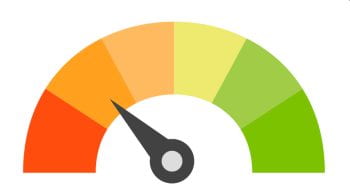A series of financial security tips
Your FICO score is a credit scoring technique used to evaluate applicants for almost any type of loan. Each of the three major credit-reporting agencies evaluates these factors and determines your credit score; therefore, you may have three different scores. FICO scores range from 300 to 850, with a higher score indicating a lower risk. A score of 760 or higher will likely qualify you for the lowest possible interest rate, while scores below 620 may disqualify you entirely from many loans. To maximize your score, you should consider the impact of the following factors.

Payment History
This takes into account payment activity on all of your accounts, including credit cards, mortgages, and car payments. It includes late payments, delinquent accounts, and bankruptcies. Use these tips to improve this factor of your credit score:
- Pay on time. Make all required payments on time. Failure to do so will result in reporting by the lender to the credit bureaus and will have a significant adverse effect on your score.
- Explain any late payments. If you have an isolated instance of late payment, contact the lender to explain the unusual reasons and ask for special consideration in reversing the late payment report.
Total Amount Owed
This takes into account the amount of credit you are using, the number of accounts that have balances, and the amount that you owe on outstanding loans. Use these tips to improve this factor of your credit score:
- Distribute balances / keep overall balances low. Don’t use more than 50% of available credit on any single credit card.
- Use your credit. Take every opportunity to use your available credit and pay off the balance on a timely basis. If accounts are kept open, use them at least once a year.
Length of Credit History
This considers the amount of time you’ve had your accounts, as well as how often you use them. Use these tips to improve this factor of your credit score:
- Keep older accounts. The older your account, the better your score. If you decide to close a card or account, it would be better to close the newer ones first.
- Use older accounts. Consider using your older cards first since these receive heavier weighting in your score.
New Credit
This considers the number of new accounts you open, as well as the number of inquiries into your credit report. Use these tips to improve this factor of your credit score:
- Avoid unnecessary inquiries. Each application for credit cards, loans, etc. results in a request for your credit file, which may hurt your FICo score. One suggestion is to provide the potential lender with your own copy of your credit report, which you can request directly from the credit reporting agency without it affecting your score.
- Establish credit gradually. If you have a short credit history, do not open too many accounts at once in an attempt to establish credit; this can lower the average age of your accounts and negatively impact your score. To initiate a good credit score, you may also want to obtain a family member’s consent to list you as an authorized user on their credit card, if at all possible (and assuming their account is kept in good standing).
Types of Accounts
This factor takes into account the types of accounts you have, such as credit cards and mortgages. Use this tip to improve this factor of your credit score:
- Diversify. A diverse mixture of accounts can be beneficial to your credit score. For example, having a mortgage, car loan, furniture or appliance note, and a few credit cards will help your score, whereas possessing all credit card accounts may be a negative. Loans from finance companies are often an indicator of past credit difficulties and should be avoided if possible.
Additional Tips
- Review your report. It’s a good idea to periodically review your credit report to ensure that all of the information is accurate. If there are errors, contact the lender and credit-reporting agency to dispute the information.
- Dispute items. If you dispute the validity of a charge or the accuracy of a payment being late, write to the lender and the credit bureaus explaining your case and requesting that your file be corrected. By law, they are obligated to research your issue and make any necessary changes to your credit report.
Resources:
The information contained in this post is intended for educational purposes only and was compiled from an article penned by Work-Life Solutions experts, WashU’s employee assistance program vendor. If you would like to do a deeper dive or talk with someone about your specific situation, consider the following resources:
